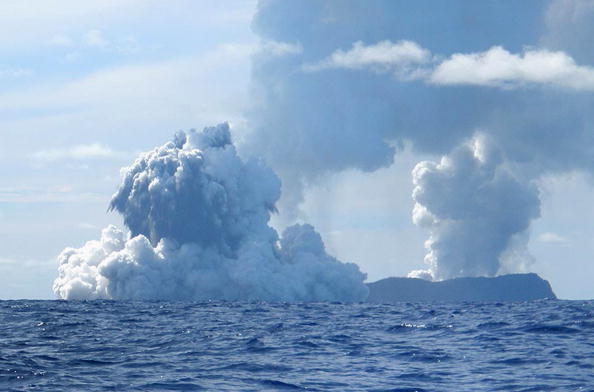Underwater volcanoes could be affecting climate change


A free daily email with the biggest news stories of the day – and the best features from TheWeek.com
You are now subscribed
Your newsletter sign-up was successful
A new study suggests that climate change may actually begin underwater. Researchers at Columbia University's Lamont-Doherty Earth Observatory found that volcanic eruptions beneath the ocean's surface could impact the process of climate change.
The study, published in the journal Geophysical Research Letters, suggests that climate analysts add volcanic consideration into predictive climate change models.
"People have ignored seafloor volcanoes on the idea that their influence is small — but that's because they are assumed to be in a steady state, which they’re not," study author Maya Tolstoy said in a statement. According to Tolstoy, scientists assume underwater volcanoes erupt at a steady pace, but she argues that seafloor volcanoes erupt in bursts.
The Week
Escape your echo chamber. Get the facts behind the news, plus analysis from multiple perspectives.

Sign up for The Week's Free Newsletters
From our morning news briefing to a weekly Good News Newsletter, get the best of The Week delivered directly to your inbox.
From our morning news briefing to a weekly Good News Newsletter, get the best of The Week delivered directly to your inbox.
Since volcanic eruptions release carbon dioxide, which contribute to Earth's warming, scientists should now look at whether undersea volcanoes produce a significant enough amount of carbon dioxide to alter the climate change process, Time notes.
A free daily email with the biggest news stories of the day – and the best features from TheWeek.com
Meghan DeMaria is a staff writer at TheWeek.com. She has previously worked for USA Today and Marie Claire.
